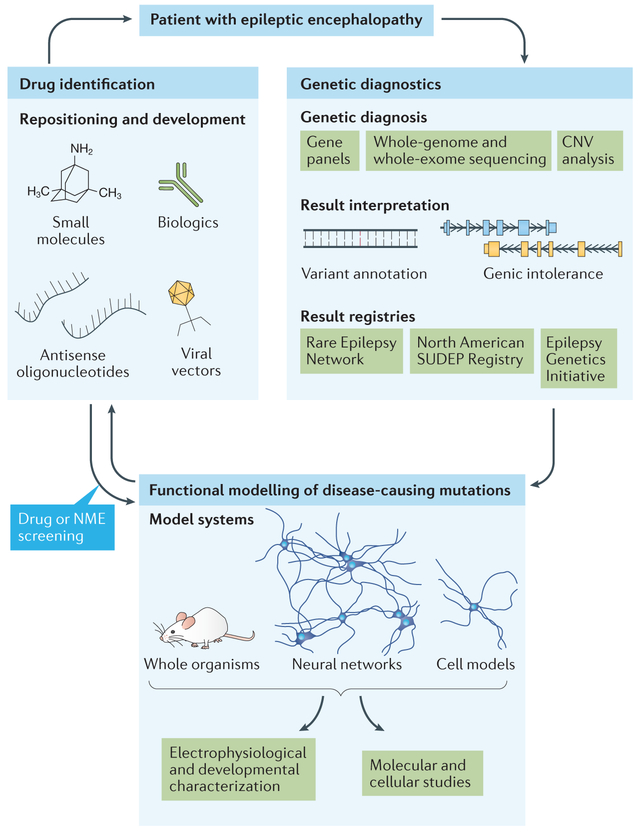Figure 2 |. Precision medicine for highly genetic diseases — epileptic encephalopathy as a model.
A patient with epileptic encephalopathy can undergo genetic testing, including screening of an epilepsy gene panel or whole-exome sequencing for detection of single nucleotide variants, or microarray analysis for identification of copy number variants (CNVs) (right panel). Novel variants are interpreted using existing variant annotation tools and gene-level intolerance scores to determine likely pathogenicity. Patient registries have been established to house the data on disease-causing mutations and their associated phenotypes for future diagnostic efforts. Advances in gene-editing technologies have revolutionized the ability to generate functional models of pathogenic variants (bottom panel). In vivo modelling of whole organisms and in vitro modelling of neural networks along with individual neurons (derived from mouse or human induced pluripotent stem cells) and heterologous cell models can be thoroughly evaluated for pro-epileptic states using a variety of electrophysiological platforms, including electroencephalography, electroconvulsive threshold studies, multielectrode arrays and patch–clamp studies. Additional molecular and cellular studies, such as those assessing protein–protein interactions, protein localization or gene expression, can also be performed to further dissect disease pathogenesis and identify potential drug targets. These drug targets can be used as the basis for drug repositioning or drug development efforts (left panel). The efficacy of candidate compounds can then be tested using the previously established electrophysiological screening platforms. Compounds that are already US Food and Drug Administration (FDA)-approved and demonstrate amelioration of the disease phenotype in functional models may be considered for use in the patient under the care and surveillance of their physician. Efforts in epilepsy precision medicine have been thoroughly reviewed by the EpiPM Consortium122. NME, new molecular entity; SUDEP, Sudden Unexplained Death in Epilepsy.

